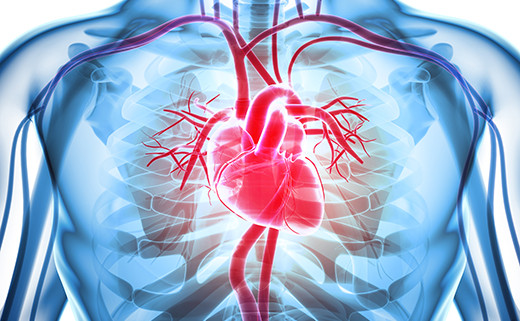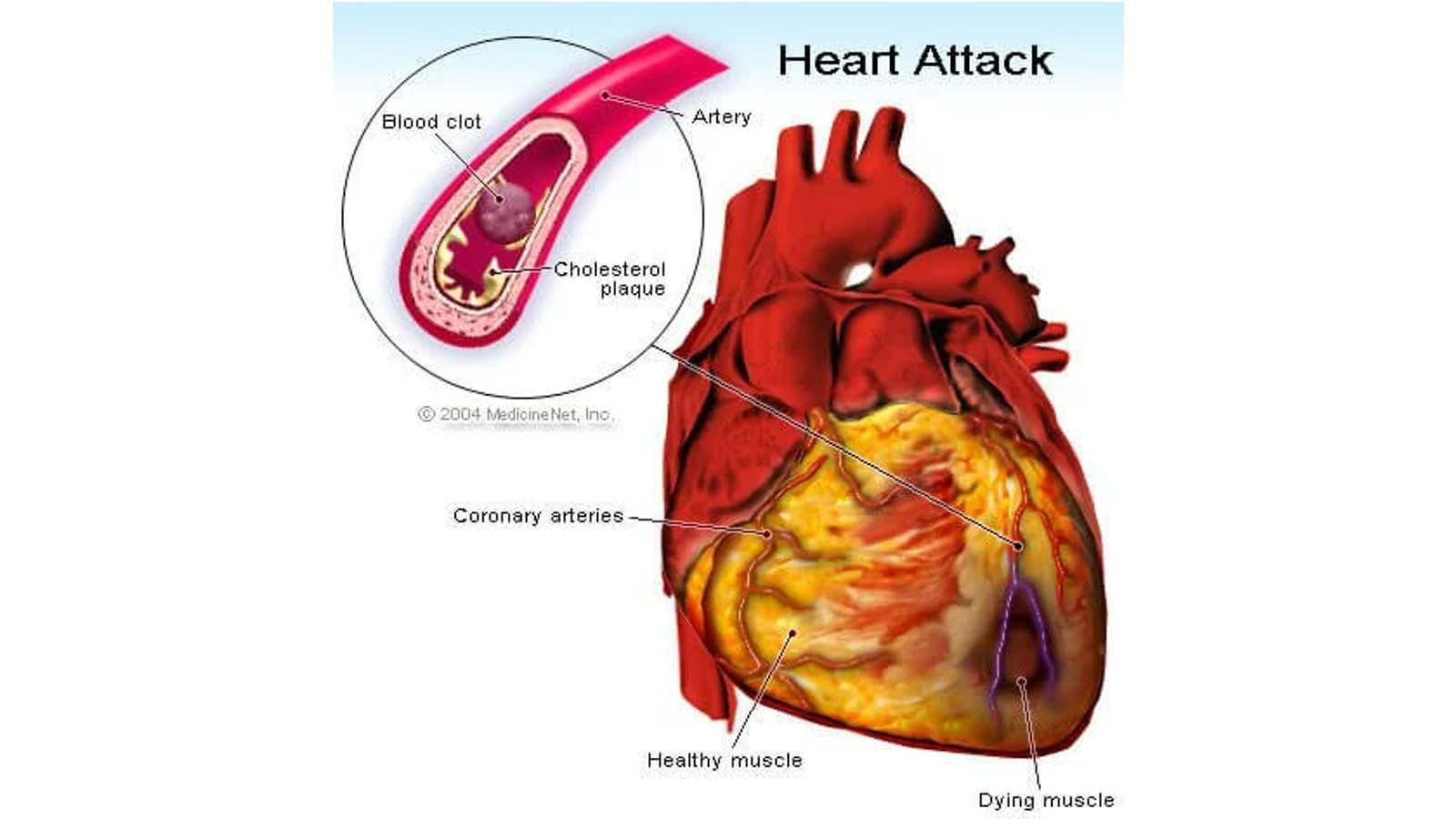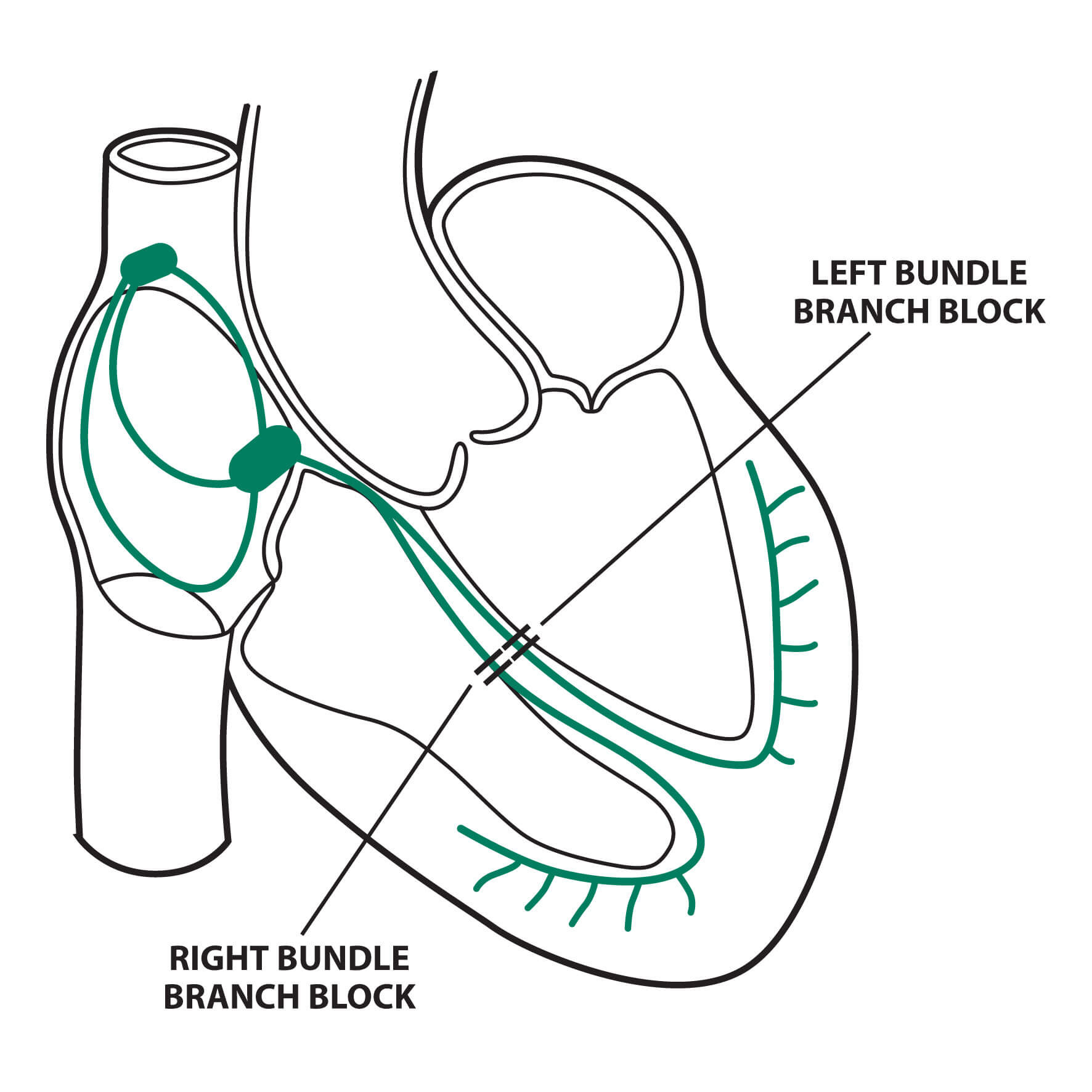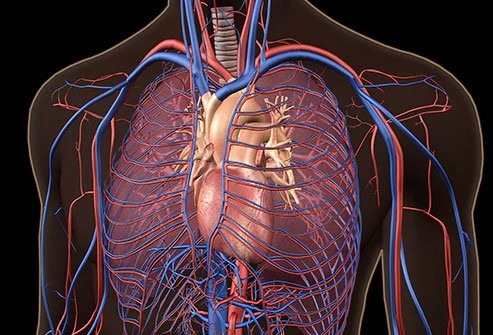Definisi
Gangguan pada katup jantung dapat muncul sejak dilahirkan atau disebabkan karena terjadinya proses infeksi, serangan jantung, atau gangguan kerusakan pada struktur jantung. Gejala utama pada gangguan katup jantung merupakan suara jantung abnormal (murmur jantung) yang dapat didengar dengan menggunakan stetoskop. Beberapa masalah pada katup jantung terkadang tidak memerlukan tindakan segera dan tidak bersifat gawat darurat. Namun, terdapat beberapa kasus gangguan katup jantung yang memerlukan prosedur medis tertentu dan dipertimbangkan untuk melakukan pembedahan penggantian katup jantung.
Jantung Anda memiliki empat katup. Normalnya, katup-katup tersebut berfungsi sebagai gerbang yang mengontrol arah aliran darah. Katup jantung dapat membuka dan membiarkan darah melewatinya serta dapat menutup untuk mencegah terjadinya aliran balik darah. Namun, tak jarang katup-katup jantung tidak berfungsi sebagaimana mestinya.
Secara garis besar, terdapat tiga keadaan pada gangguan katup jantung, yaitu:
- Regurgitasi katup, merupakan keadaan dimana aliran darah berbalik ke arah yang salah melewati katup
- Stenosis katup, merupakan keadaan dimana katup tidak dapat membuka secara sempurna dan menghambat aliran darah
- Tidak terbentuknya katup pada jantung dan digantikan oleh jaringan yang menutup aliran darah pada ruang-ruang jantung
Penyebab
Jantung Anda memiliki dua bilik dan dua serambi dengan empat katup yang berbeda. Masing-masing ruangan memiliki katup yang berfungsi untuk memastikan agar darah mengalir ke arah yang benar dan mengisi ruang jantung yang benar serta mencegah aliran balik darah. Masing-masing katup memiliki struktur berbentuk seperti lembaran yang dapat membuka dan menutup seiring irama denyut jantung.
Struktur katup jantung dapat mengalami kelainan yang disebabkan oleh berbagai penyebab. Salah satunya karena infeksi bakteri. Infeksi bakteri dapat menyebabkan kerusakan pada struktur katup jantung sehingga mengakibatkan katup jantung tidak dapat membuka atau menutup secara normal dan mengganggu aliran darah. Gangguan aliran darah menyebabkan turbulensi dan mengeluarkan suara khas kelainan katup jantung sebagai tanda adanya kelainan.
Penyebab lain dari gangguan katup jantung adalah:
- Penyakit jantung bawaan, dimana anak terlahir dengan katup yang tidak normal
- Demam reumatik
- Gangguan otot jantung
- Kerusakan otot jantung karena serangan jantung
Faktor Risiko
Beberapa faktor risiko yang dapat menyebabkan gangguan katup jantung di antaranya:
1. Faktor Usia
Seiring bertambahnya usia, struktur pada jantung seseorang menjadi semakin lemah dan mempengaruhi struktur katup jantung pada orang dengan usia lanjut.
2. Riwayat Infeksi Jantung
Seseorang dengan riwayat infeksi pada jantung atau serangan jantung juga memiliki risiko mengalami gangguan pada katup jantung.
3. Tekanan Darah Tinggi dan Kolesterol Tinggi
Orang yang mengalami tekanan darah tinggi, kadar kolesterol tinggi dan faktor lain yang menyebabkan penyakit jantung juga memiliki risiko mengalami gangguan katup jantung.
4. Penyakit Jantung Bawaan
Kasus yang banyak ditemukan terjadi pada gangguan jantung yang muncul sejak dilahirkan (kongenital). Gangguan katup kongenital pada umumnya disebabkan karena gangguan pada proses perkembangan organ pada saat dalam kandungan yang mempengaruhi pembentukan yang tidak sempurna pada struktur katup jantung.
Gejala
Beberapa orang yang mengalami gangguan katup jantung bisa tampak normal dan tidak memiliki gejala khusus yang terlihat selama bertahun-tahun. Namun, beberapa gejala yang muncul di antaranya adalah bunyi jantung abnormal yang dapat didengar menggunakan stetoskop, nyeri dada, bengkak pada beberapa bagian tubuh, mudah lelah, nafas menjadi lebih pendek terutama ketika sedang beraktivitas atau berbaring, merasa pusing, gangguan irama jantung hingga kehilangan kesadaran.
Diagnosis
Dokter Anda akan menyarankan untuk dilakukan pemeriksaan dan mendengarkan suara abnormal pada jantung Anda yang menjadi salah satu gejala gangguan katup jantung. Beberapa pemeriksaan seperti echocardiography akan dilakukan, pemeriksaan ini didasarkan pada gelombang suara yang diarahkan ke jantung Anda melalui sebuah alat sehingga didapatkan gambaran jantung Anda pada layar monitor. Pemeriksaan ini dilakukan untuk melihat struktur jantung, katup jantung, dan aliran darah pada jantung Anda. Metode ini dapat membantu dokter untuk melihat fungsi pada katup jantung Anda secara langsung dan menilai apakah terjadi gangguan pembukaan atau penutupan pada katup jantung yang dapat menyebabkan turbulensi aliran darah sehingga mengakibatkan munculnya suara abnormal jantung.
Selain itu, pemeriksaan lain yang digunakan adalah EKG (Elektrokardiogram) atau rekam jantung. EKG menggunakan beberapa kabel elektroda yang ditempelkan pada permukaan kulit di area tertentu untuk menilai aktivitas listrik pada jantung. EKG dapat menunjukkan gangguan irama jantung dan mendeteksi bila ada pembesaran ruang jantung.
Lebih lanjut, dokter juga dapat menyarankan Anda untuk melakukan foto rontgen yang dapat membantu dokter untuk melihat secara langsung apabila terdapat pembesaran ruang jantung. MRI jantung merupakan pemeriksaan yang dilakukan untuk menciptakan gambaran detail tentang ukuran dan fungsi pada jantung Anda.
Tata Laksana
Metode pengobatan yang dilakukan bergantung kepada gejala dan seberapa parah kondisi yang sedang Anda alami. Dokter spesialis jantung akan memberikan tata laksana sembari mengamati kondisi Anda dari waktu ke waktu. Dokter akan menyarankan Anda untuk mengubah gaya hidup menjadi lebih sehat dan memberikan obat untuk meredakan gejala yang Anda alami.
Beberapa pasien dengan kondisi serius membutuhkan prosedur khusus yang mengharuskan dilakukannya tindakan pembedahan katup jantung, bertujuan untuk memperbaiki atau mengganti struktur katup jantung yang rusak. Pada kondisi tertentu dokter bedah hanya akan memperbaiki struktur katup jantung anda dengan memberikan penahan atau mengencangkan beberapa bagian untuk menjaga agar katup jantung dapat berfungsi dengan normal. Namun, apabila diharuskan untuk melakukan penggantian katup jantung, struktur katup jantung yang rusak akan diganti dengan katup jantung mekanik atau katup jantung yang terbuat dari jaringan makhluk hidup lain seperti sapi atau manusia.
Jika dokter melakukan penggantian katup jantung Anda dengan menggunakan katup jantung mekanik, maka Anda diharuskan untuk mengonsumsi obat-obatan pengencer darah seumur hidup untuk menghindari risiko terjadinya penggumpalan darah. Kekurangan yang terjadi pada penggantian katup jantung dengan menggunakan katup jantung dari jaringan makhluk hidup lain ialah, struktur katup jantung yang baru tersebut biasanya akan mengalami kerusakan seiring berjalannya waktu dan membutuhkan penggantian.
Komplikasi
Beberapa komplikasi yang dapat terjadi pada gangguan katup jantung di antaranya adalah gagal jantung, stroke, gangguan penggumpalan darah, gangguan irama jantung hingga kematian. Terganggunya struktur katup jantung dapat menyebabkan perubahan tekanan aliran darah dan mengakibatkan terjadinya turbulensi aliran yang memengaruhi dinding pada ruang-ruang jantung. Fungsi jantung bisa terganggu dan menyebabkan efek berantai hingga mengakibatkan gagal jantung. Faktor risiko lain seperti tingginya kolesterol juga dapat memicu terjadinya stroke apabila terdapat penyumbatan pada aliran darah dan mengakibatkan pecahnya pembuluh darah. Selain itu, kerusakan pada struktur katup jantung juga dapat memicu terjadinya penggumpalan darah dan berisiko meningkatkan kejadian stroke.
Pencegahan
Apabila Anda sudah mengetahui bahwa Anda memiliki masalah pada katup jantung Anda, menjadi penting bagi Anda untuk melindungi diri anda dari kemungkinan terburuk dan komplikasi yang dapat anda alami sekalipun Anda telah melakukan operasi untuk memperbaiki atau mengganti katup jantung Anda. Beberapa hal yang harus diperhatikan adalah:
- Mengetahui jenis dan seberapa parah gangguan katup jantung yang Anda alami
- Rutin melakukan pemeriksaan perihal penyakit yang Anda alami
- Ubah gaya hidup Anda menjadi lebih sehat sesuai dengan saran dan petunjuk dari dokter
- Konsultasikan kepada dokter perihal aktivitas fisik yang diperbolehkan dan makan-makanan bergizi seimbang
- Jaga berat badan Anda tetap stabil
- Kelola stress
- Hindari kebiasaan buruk seperti merokok dan minum-minuman beralkohol karena rokok diketahui dapat menyebabkan terjadinya kerusakan pada pembuluh darah Anda
Pada perempuan yang mengalami gangguan katup jantung sebaiknya Anda berkonsultasi dengan dokter sebelum mengambil keputusan untuk hamil. Dokter Anda akan memberikan saran dan petunjuk terkait obat-obatan yang aman dikonsumsi selama hamil serta memberikan pertimbangan tertentu terkait seberapa parah gangguan yang Anda alami dan risiko yang dapat Anda alami selama hamil hingga melahirkan. Jika Anda memiliki kondisi gangguan katup jantung yang cukup parah, dokter akan merekomendasikan untuk menunda kehamilan untuk mengurangi risiko terjadinya komplikasi.
Kapan Harus Ke Dokter?
Jika Anda mengalami gejala dan pertanda yang mengarahkan kepada dugaan gangguan pada jantung Anda seperti mudah lelah, nafas pendek, berdebar-debar, keringat dingin, pusing, dan sesak nafas sebaiknya Anda segera menemui dokter. Dokter akan melakukan pemeriksaan dan menilai adanya kelainan yang mengarah pada kelainan katup jantung. Jika ditemukan suara jantung abnormal, dokter akan merekomendasikan atau merujuk Anda untuk menemui dokter spesialis jantung agar dapat dilakukan pemeriksaan yang lebih komprehensif.
Jika Anda telah memiliki riwayat penyakit jantung sebelumnya, sebaiknya Anda melakukan pemeriksaan rutin untuk memastikan kondisi jantung Anda. Konsultasikan kepada dokter apabila anda memiliki riwayat alergi pada obat-obatan tertentu agar dokter dapat memilihkan obat-obatan terbaik untuk Anda.
Mau tahu informasi seputar penyakit lainnya? Cek di sini, ya!
- dr Hanifa Rahma
(British Heart Foundation, 2021) Heart Valve Disease diakses pada 10 April 2022, dari Heart valve disease | British Heart Foundation (bhf.org.uk)
(CDC, 2019) Valvular Heart Disease diakses pada 10 April 2022, dari Valvular Heart Disease | cdc.gov
(Mayoclinic, 2021) Heart Valve Disease diakses pada 10 April 2022, dari Heart valve disease - Symptoms and causes - Mayo Clinic
(Mayoclinic, 2021) Heart Valve Disease diakses pada 10 April 2022, dari Heart valve disease - Diagnosis and treatment - Mayo Clinic
(MedlinePlus, 2020) Heart Valve Disease diakses pada 10 April 2022, dari Valvular Heart Disease | Heart Valve Disease | MedlinePlus
(WebMD, 2021) Heart Valve Disease diakses pada 10 April 2022, dari An Overview of Heart Valve Disease (webmd.com)












